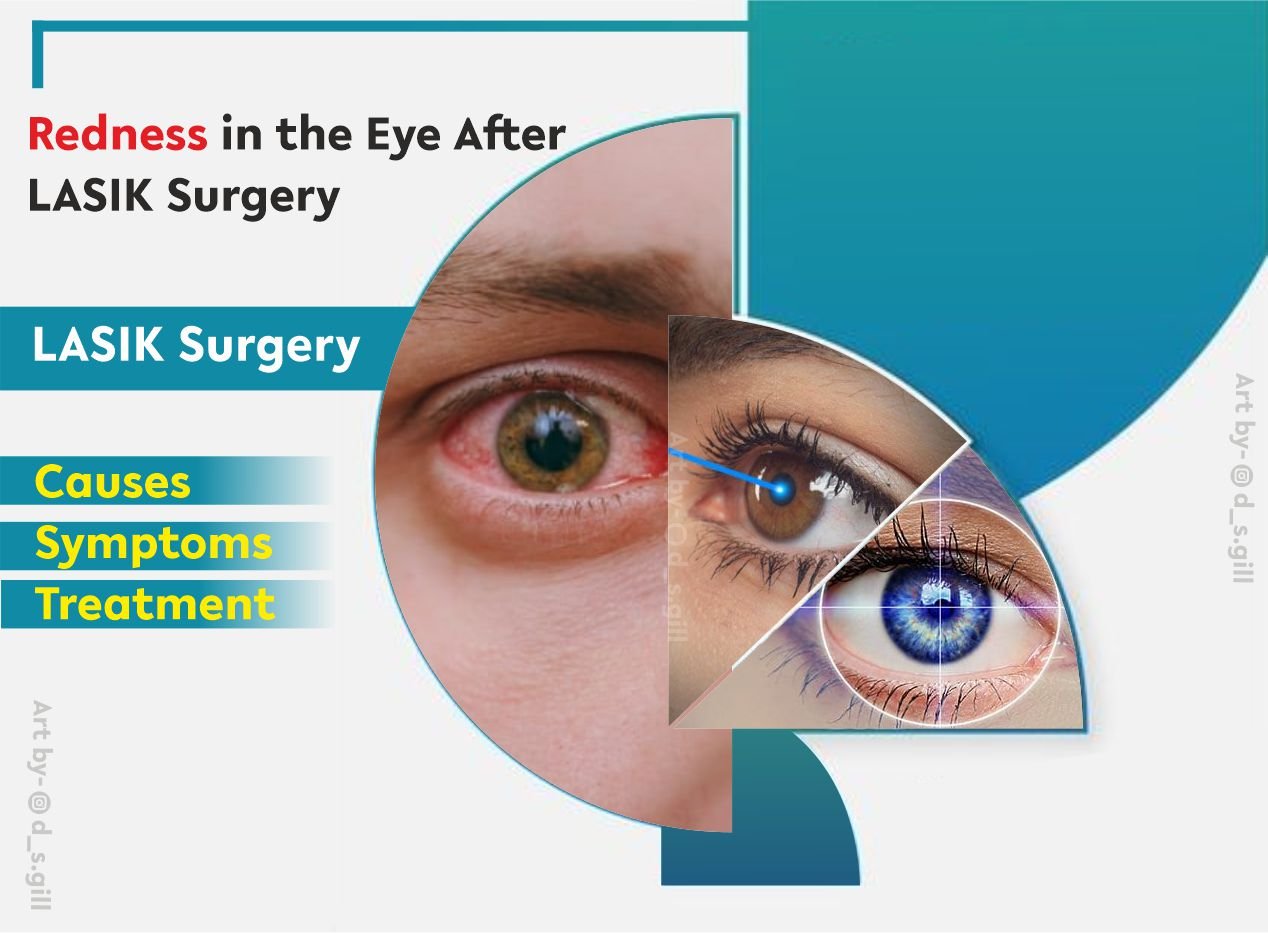LASIK eye surgery, renowned for its high success rate and transformative vision correction capabilities, has become a cornerstone in the field of ophthalmology worldwide. While the majority of patients experience a smooth recovery with minimal discomfort, some may encounter temporary side effects, including Redness in the Eye after Lasik. This article has expert inputs from the best Lasik surgeon in Bathinda, Dr Kashish Gupta of Max Healthcare. The idea is to provide expert insights into the causes of post-LASIK redness, what it means for your recovery, and how to effectively manage it, ensuring a clear path to optimal visual health.
Why does redness happen after LASIK?
Redness in the eye following LASIK surgery is a typical response and typically not a cause for alarm. It’s important to understand the various factors that can contribute to this condition to accelerate the recovery process better.
What are the Causes of Redness in the Eye?
- Subconjunctival Haemorrhage: This is one of the main reasons why eyes get red after LASIK. Both the very precise lasers used in the process and the pressure used to make the corneal flap can cause tiny blood vessels to break, leaving a red spot. This is generally not dangerous and goes away on its own.
- Dry Eye Syndrome: It is possible for LASIK surgery to temporarily inhibit tear production, which can result in dry eyes. It is possible for discomfort and redness to result from this lack of lubrication.
- Corneal Inflammation: A rare occurrence nonetheless, some people may have corneal redness while it heals. Keratitis is the name of this disease, and it can make your skin red and cause other symptoms.
Tips on How to Manage Redness After LASIK?
- Follow the advice of your Eye doctor.
You must follow your surgeon’s post-operative instructions to the letter. These recommendations are intended to lessen discomfort and encourage healing, which will reduce the possibility of persistent redness.
- Use Prescribed Medication for Redness
Your doctor will give you antibiotics and anti-inflammatory eye drops to keep you from getting an infection and to ease the pain. Artificial tears are often advised for lubricating eye to help reduce the discomfort and redness, if in case you have dry eyes.
Practice Good Eye Hygiene regularly.
Don’t rub or touch your eyes; this can spread germs, make you more likely to get an infection, and make the redness worse. Maintaining a tidy atmosphere free of dust and other allergens that can irritate your eyes is also crucial.
- Monitor for Changes
Even though redness in the eyes is usually only brief, it’s important to keep an eye on them in case the symptoms change or get worse. If you have persistent redness followed by pain, significant discomfort, or changes in your vision, you should see your surgeon immediately.
When to Seek advanced medical intervention?
If redness lasts longer than anticipated or is accompanied by other worrisome symptoms, it can be a sign of an underlying problem that needs to be treated by a doctor. Prompt consultation with your LASIK surgeon can ensure any complications are addressed early, safeguarding your vision and overall eye health.
Redness in the eye after Lasik: Blog Summary
LASIK surgery is only the first step towards clear vision. There is also a follow-up process of healing that is equally important. It is advised that you gain the requisite understanding of dealing with potential side effects of LASIK, such as redness. Your eye surgeon is the best resource to guide you through the LASIK aftercare plan. You have to follow these instructions faithfully while keeping a close eye on your post-Lasik recovery progress.
Remember, in most cases, redness after LASIK is normal, but it should be carefully watched over and dealt with. It shows how well the body naturally heals, and as long as you take the proper steps, it should go away without affecting surgery end results.
If your redness persists or intensifies further, then you have to visit your surgeon to figure out what is going wrong or look for any associated cause. But in most cases, it goes off with prescribed eye drops, and you are free to enjoy the benefits of a spectacle-free life and see the world around you more clearly.

